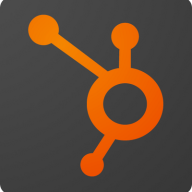

HubSpot CRM and Dynamics 365 Sales are leading solutions in the CRM category. HubSpot holds an edge with its marketing capabilities and ease of use, while Dynamics 365 offers seamless Microsoft integrations and strong data control.
Features: HubSpot CRM is recognized for its intuitive navigation, rich marketing tools, and ease of setup. It efficiently integrates with email and supports seamless sales automation with versatile APIs. Dynamics 365 Sales offers strong ERP features, seamless integration with Microsoft platforms, and robust data control throughout sales processes.
Room for Improvement: HubSpot CRM needs to enhance its email functionalities, improve customization options, and consider lowering pricing for non-enterprise users. Its subscription models with limited integration capabilities can restrict flexibility for some businesses. Dynamics 365 Sales should focus on enhancing reporting features, cost reduction, and improving integration with non-Microsoft platforms.
Ease of Deployment and Customer Service: Both HubSpot CRM and Dynamics 365 Sales are primarily cloud-based. HubSpot offers additional deployment versatility with private and hybrid cloud options. Users generally report positive experiences with customer service for both, although HubSpot receives mixed reviews on technical support.
Pricing and ROI: HubSpot CRM is known for its affordability, particularly attractive for small businesses. It offers a modular pricing model with a popular free version, though advanced features can be pricey. Dynamics 365 Sales is positioned as a mid-range pricing option, sometimes seen as costly but offering cost-effectiveness against some competitors like SAP. Both platforms significantly contribute to lead generation and revenue, with Dynamics 365's ROI varying across different markets due to budget constraints.


Dynamics 365 Sales empowers teams with capabilities in lead management, scheduling, and workflow organization. Its Office 365 integration and comprehensive ERP features enhance productivity and control.
Dynamics 365 Sales offers powerful tools for managing leads and customer interactions. Its integration with third-party apps and REST APIs simplifies workflows, providing comprehensive visibility and reliable performance. Teams benefit from its robust documentation and Power Platform compatibility, enhancing productivity with flexible pricing and a user-friendly interface. Despite some complexities, improvements in Outlook integration, AI features, and affordability are areas for enhancement.
What are the key features of Dynamics 365 Sales?Companies in industries like retail and sales management implement Dynamics 365 Sales to track opportunities and manage customer interactions. It helps in generating customized offers, managing orders, and supports sales reporting and CRM capabilities. Teams utilize it for sales management, lead follow-ups, and aligning targets with objectives, making it essential for daily operations.
HubSpot CRM is a comprehensive customer relationship management software that helps businesses manage their sales, marketing, and customer service activities. It offers a wide range of features, including contact management, email tracking, deal tracking, and task management.
With its intuitive interface and easy-to-use tools, HubSpot CRM allows users to streamline their sales processes, track customer interactions, and improve overall productivity. It also integrates seamlessly with other HubSpot products, such as marketing automation and customer service, providing a complete solution for businesses of all sizes.
Whether you're a small startup or a large enterprise, HubSpot CRM can help you organize and grow your customer relationships.
We monitor all CRM reviews to prevent fraudulent reviews and keep review quality high. We do not post reviews by company employees or direct competitors. We validate each review for authenticity via cross-reference with LinkedIn, and personal follow-up with the reviewer when necessary.